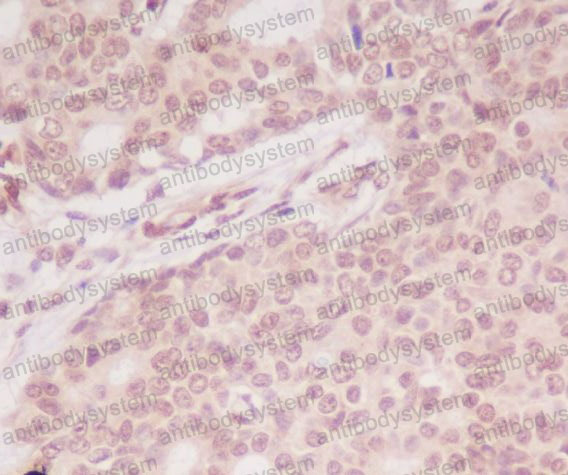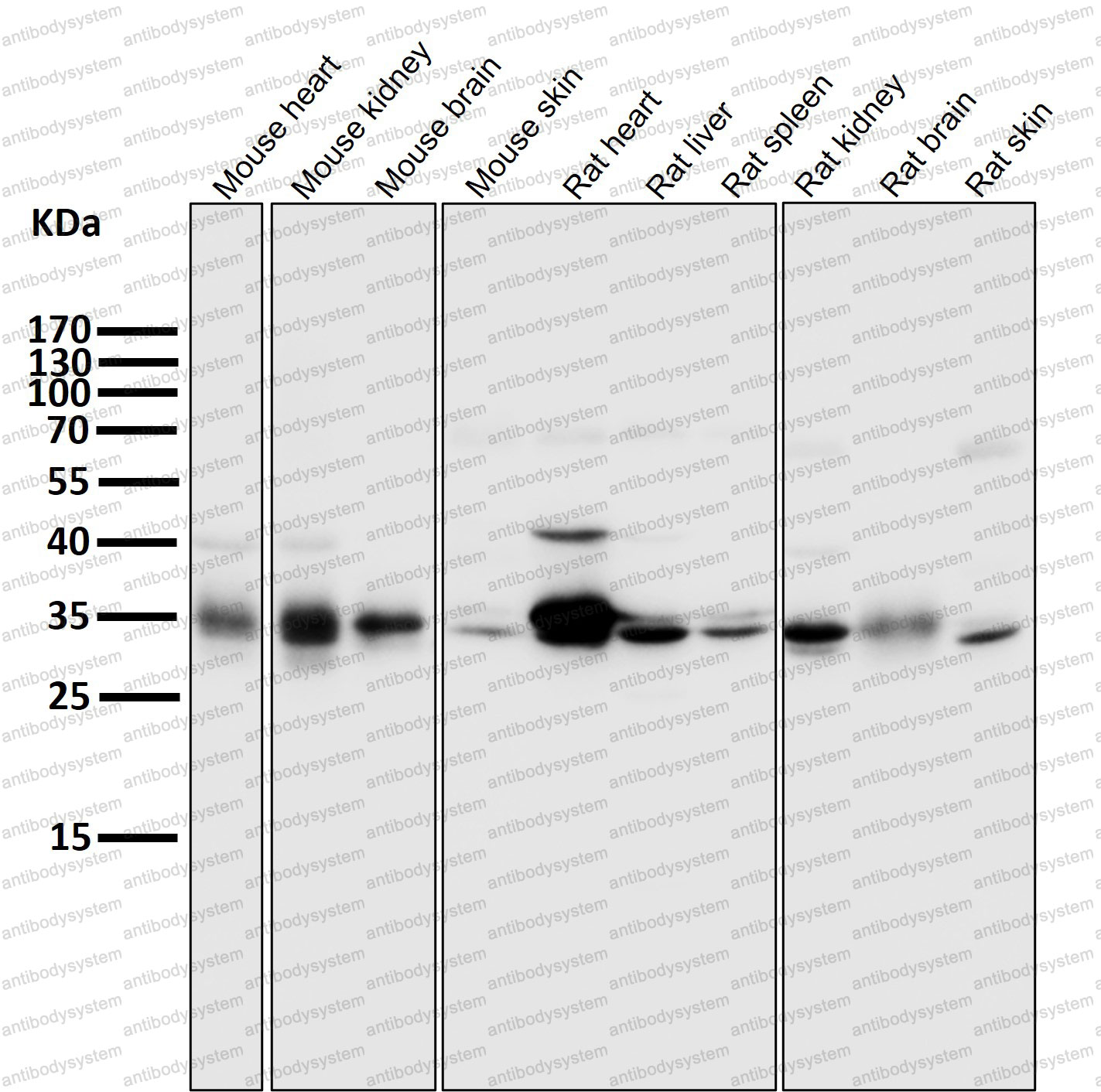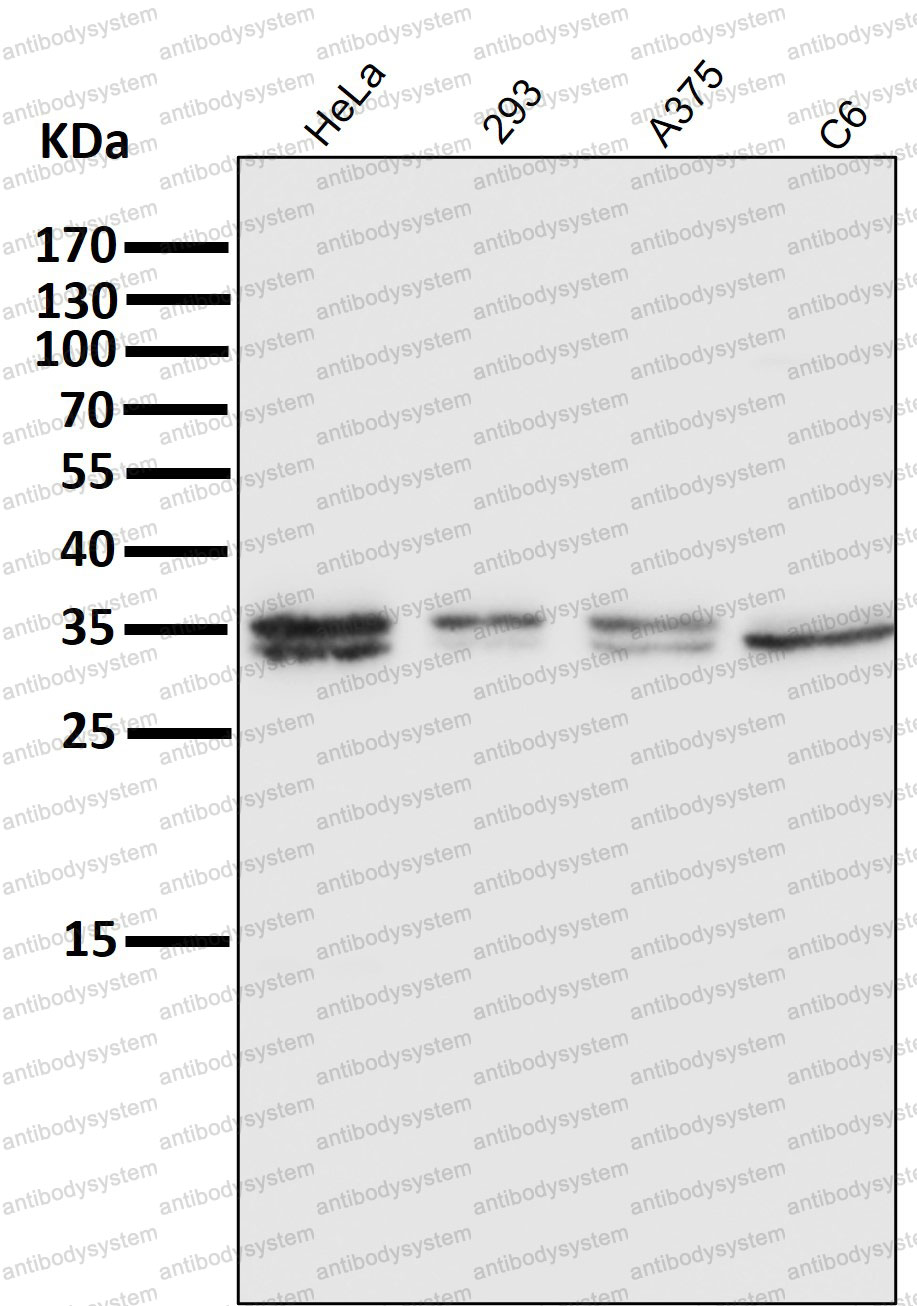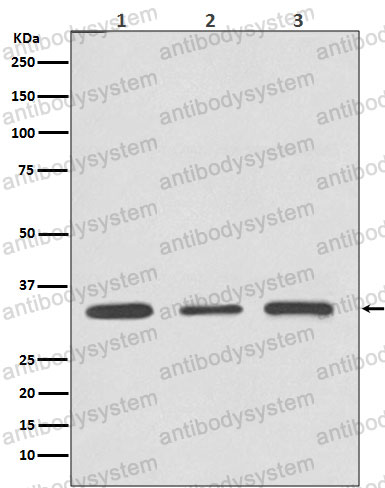Overview
Catalog No.
RHN44502
Species reactivity
Human, Mouse, Rat
Host species
Rabbit
Isotype
IgG
Clonality
Monoclonal
Tested applications
IF: 1:50-1:200, IHC: 1:100-1:200, IP: 1:20-1:50, WB: 1:1000-1:2000
Target
ATF5, Transcription factor ATFx, Cyclic AMP-dependent transcription factor ATF-5, ATFX, cAMP-dependent transcription factor ATF-5, Activating transcription factor 5
Concentration
1 mg/ml
Endotoxin level
Please contact with the lab for this information.
Purity
>95% by SDS-PAGE.
Purification
Protein A/G purified from cell culture supernatant.
Accession
Q9Y2D1
Applications
IF, IHC, IP, WB
Form
Liquid
Storage buffer
0.01M PBS, pH 7.4, 0.05% BSA, 50% Glycerol, 0.05% Sodium azide.
Stability and Storage
Use a manual defrost freezer and avoid repeated freeze thaw cycles. Store at 4 ℃ for frequent use. Store at -20 ℃ for twelve months from the date of receipt.
Clone ID
R2N85
Data Image
-
Immunohistochemical analysis of paraffin-embedded Human breast, using ATF5 Antibody.
-
All lanes use the Antibody at 1:2K dilution for 1 hour at room temperature.
-
All lanes use the Antibody at 1:2K dilution for 1 hour at room temperature.
-
Western blot analysis of ATF5 expression in (1) Jurkat cell lysate; (2) 3T3 cell lysate; (2) C6 cell lysate.
References
Advancements in Activating Transcription Factor 5 Function in Regulating Cell Stress and Survival., PMID:35806136
Functional validation of epitope-tagged ATF5 knock-in mice generated by improved genome editing of oviductal nucleic acid delivery (i-GONAD)., PMID:33825962
A Uromodulin Mutation Drives Autoimmunity and Kidney Mononuclear Phagocyte Endoplasmic Reticulum Stress., PMID:32926855
Expression and targeting of transcription factor ATF5 in dog gliomas., PMID:28480569
Transcriptomic and functional pathways analysis of ascorbate-induced cytotoxicity and resistance of Burkitt lymphoma., PMID:27590508
Regulated ATF5 loss-of-function in adult mice blocks formation and causes regression/eradication of gliomas., PMID:21725368
Re-expression of transcription factor ATF5 in hepatocellular carcinoma induces G2-M arrest., PMID:18701499
Datasheet




